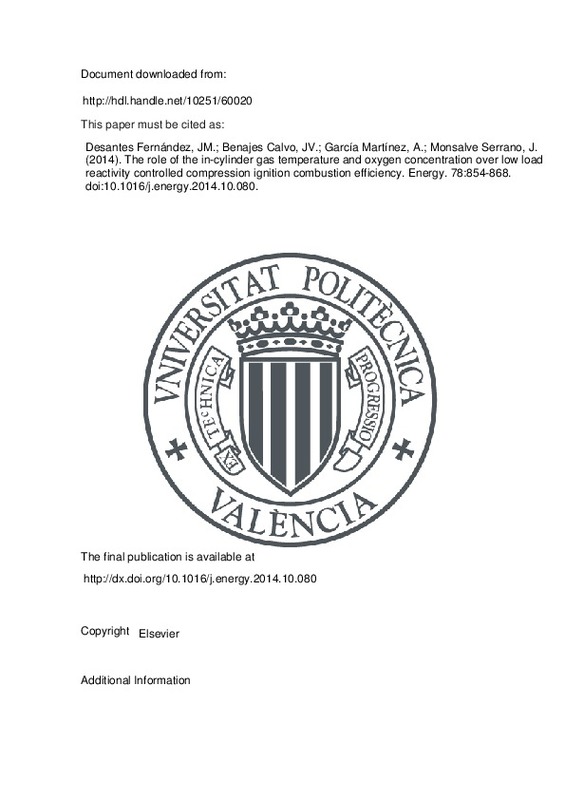JavaScript is disabled for your browser. Some features of this site may not work without it.
Buscar en RiuNet
Listar
Mi cuenta
Estadísticas
Ayuda RiuNet
Admin. UPV
The role of the in-cylinder gas temperature and oxygen concentration over low load reactivity controlled compression ignition combustion efficiency
Mostrar el registro sencillo del ítem
Ficheros en el ítem
| dc.contributor.author | Desantes Fernández, José Mª
|
es_ES |
| dc.contributor.author | Benajes Calvo, Jesus Vicente
|
es_ES |
| dc.contributor.author | García Martínez, Antonio
|
es_ES |
| dc.contributor.author | Monsalve Serrano, Javier
|
es_ES |
| dc.date.accessioned | 2016-01-19T13:30:12Z | |
| dc.date.available | 2016-01-19T13:30:12Z | |
| dc.date.issued | 2014-12-15 | |
| dc.identifier.issn | 0360-5442 | |
| dc.identifier.uri | http://hdl.handle.net/10251/60020 | |
| dc.description.abstract | Several studies carried out with the aim of improving the RCCI (reactivity controlled compression ignition) concept in terms of thermal efficiency conclude that the main cause of the reduced efficiency at light loads is the reduced combustion efficiency. The present study used both a 3D computational model and engine experiments to explore the effect of the oxygen concentration and intake temperature on RCCI combustion efficiency at light load. The experiments were conducted using a single-cylinder heavy-duty research diesel engine adapted for dual fuel operation. Results suggest that it is possible to achieve an improvement of around 1.5% in the combustion efficiency with both strategies studied; the combined effect of intake temperature and in-cylinder fuel blending as well as the combined effect of oxygen concentration and in-cylinder fuel blending (ICFB). In addition, the direct comparison of both strategies suggests that the combustion losses trend is mainly associated to the in-cylinder equivalence ratio stratification, which is determined by the diesel to gasoline ratio in the blend since the injection timing is kept constant for all the tests. Moreover, the combined effect of the intake temperature and ICFB promotes a slight improvement in the combustion losses over the combined effect of the oxygen concentration and ICFB. (C) 2014 Elsevier Ltd. All rights reserved. | es_ES |
| dc.description.sponsorship | The authors gratefully acknowledge the modeling support and guidance of Jose Manuel Pastor and VOLVO Group Trucks Technology (CN-2012-46) for supporting this research. | en_EN |
| dc.language | Inglés | es_ES |
| dc.publisher | Elsevier | es_ES |
| dc.relation.ispartof | Energy | es_ES |
| dc.rights | Reconocimiento - No comercial - Sin obra derivada (by-nc-nd) | es_ES |
| dc.subject | RCCI | es_ES |
| dc.subject | Low load | es_ES |
| dc.subject | Combustion efficiency | es_ES |
| dc.subject | EURO VI | es_ES |
| dc.subject | Oxygen concentration | es_ES |
| dc.subject | Intake temperature | es_ES |
| dc.subject.classification | MAQUINAS Y MOTORES TERMICOS | es_ES |
| dc.title | The role of the in-cylinder gas temperature and oxygen concentration over low load reactivity controlled compression ignition combustion efficiency | es_ES |
| dc.type | Artículo | es_ES |
| dc.identifier.doi | 10.1016/j.energy.2014.10.080 | |
| dc.relation.projectID | info:eu-repo/grantAgreement/Volvo Group Trucks Technology//CN-2012-46/ | es_ES |
| dc.rights.accessRights | Abierto | es_ES |
| dc.contributor.affiliation | Universitat Politècnica de València. Departamento de Máquinas y Motores Térmicos - Departament de Màquines i Motors Tèrmics | es_ES |
| dc.contributor.affiliation | Universitat Politècnica de València. Instituto Universitario CMT-Motores Térmicos - Institut Universitari CMT-Motors Tèrmics | es_ES |
| dc.description.bibliographicCitation | Desantes Fernández, JM.; Benajes Calvo, JV.; García Martínez, A.; Monsalve Serrano, J. (2014). The role of the in-cylinder gas temperature and oxygen concentration over low load reactivity controlled compression ignition combustion efficiency. Energy. 78:854-868. https://doi.org/10.1016/j.energy.2014.10.080 | es_ES |
| dc.description.accrualMethod | S | es_ES |
| dc.relation.publisherversion | http://dx.doi.org/10.1016/j.energy.2014.10.080 | es_ES |
| dc.description.upvformatpinicio | 854 | es_ES |
| dc.description.upvformatpfin | 868 | es_ES |
| dc.type.version | info:eu-repo/semantics/publishedVersion | es_ES |
| dc.description.volume | 78 | es_ES |
| dc.relation.senia | 277260 | es_ES |
| dc.contributor.funder | Volvo Group Trucks Technology | es_ES |







![[Cerrado]](/themes/UPV/images/candado.png)

